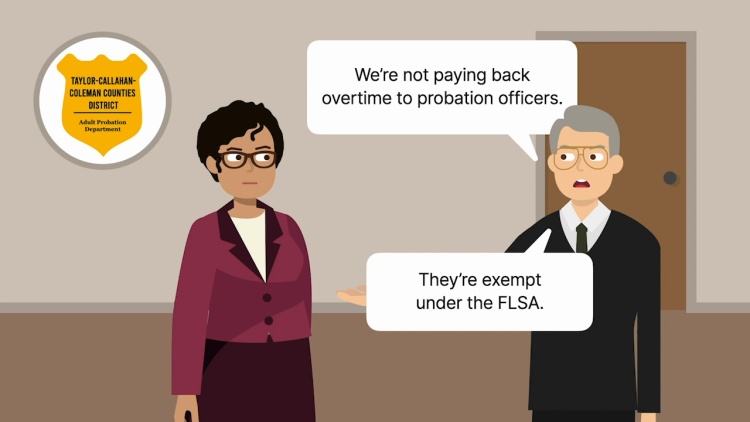Taylor-Callahan-Coleman Counties District Adult Probation Department v. Dole
United States Court of Appeals for the Fifth Circuit
948 F.2d 953 (5th Cir. 1991)
- Written by Susie Cowen, JD
Facts
The overtime requirements of the Fair Labor Standards Act (FLSA) do not apply to any employee employed in a bona fide executive, administrative, or professional capacity, as these terms are defined by Department of Labor (DOL) (defendant) regulations. In 1974, the Wage and Hour Administrator (Administrator) issued an opinion letter advising that certain probation officers were exempt from the overtime requirements as administrative employees. In 1988, the DOL issued two additional opinion letters, in which it stated that probation officers were not exempt as executive, administrative, or professional employees. The Taylor-Callahan-Coleman Counties District Adult Probation Department (District) (plaintiff) challenged the two 1988 opinion letters, neither of which was actually addressed to the District. The District argued that the letters were legislative rules that had been improperly put into effect without notice and comment and that they were inconsistent with earlier regulations and the statute. The district court dismissed the case for lack of subject matter jurisdiction, and the matter was brought before a federal appellate court.
Rule of Law
Issue
Holding and Reasoning (Clark, C.J.)
What to do next…
Here's why 899,000 law students have relied on our case briefs:
- Written by law professors and practitioners, not other law students. 47,000 briefs, keyed to 994 casebooks. Top-notch customer support.
- The right amount of information, includes the facts, issues, rule of law, holding and reasoning, and any concurrences and dissents.
- Access in your classes, works on your mobile and tablet. Massive library of related video lessons and high quality multiple-choice questions.
- Easy to use, uniform format for every case brief. Written in plain English, not in legalese. Our briefs summarize and simplify; they don’t just repeat the court’s language.





